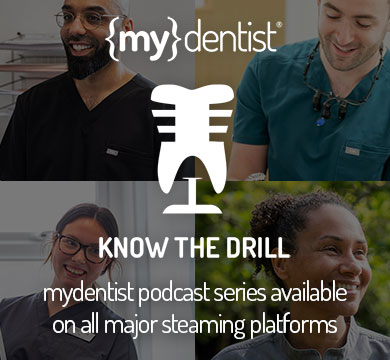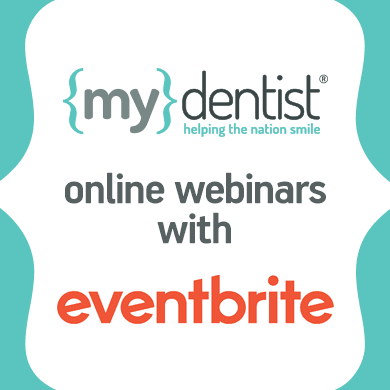Blog

Events
At mydentist we have a busy schedule of online and face-to-face CPD designed to support clinicians and dental nurses in developing their careers. We partner with industry experts to deliver training in a range of diverse topics. Colleagues who currently work at mydentist can register via the mydentist academy. The online webinars available for external clinicians can be accessed here:
